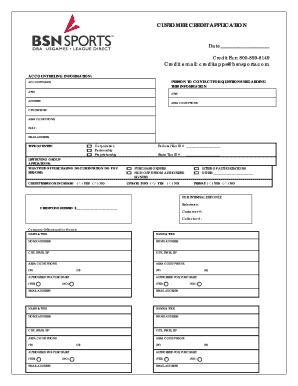 Cell applications are changing the face of business. The sustained interest in Business Intelligence functions has pushed giant corporations, offshore software development facilities in addition to custom software development corporations to deal with developing a wide range of Enterprise Intelligence Instruments appropriate for each industry. The usage of Business Intelligence instruments in key industries from aerospace to iron and metal has additionally elevated in recent years because of the uncertainty in global markets. At the moment accessible tools together with the Microsoft Enterprise Intelligence software include numerous paid, freeware as well as open supply and proprietary software, which are sometimes custom-made by a customized software developer to suit the requirements of a specific consumer. Among the further classes of Enterprise Intelligence Instruments are mentioned right here and these represent only some of the business intelligence reporting instruments commonly utilized by the enterprise.
Cell applications are changing the face of business. The sustained interest in Business Intelligence functions has pushed giant corporations, offshore software development facilities in addition to custom software development corporations to deal with developing a wide range of Enterprise Intelligence Instruments appropriate for each industry. The usage of Business Intelligence instruments in key industries from aerospace to iron and metal has additionally elevated in recent years because of the uncertainty in global markets. At the moment accessible tools together with the Microsoft Enterprise Intelligence software include numerous paid, freeware as well as open supply and proprietary software, which are sometimes custom-made by a customized software developer to suit the requirements of a specific consumer. Among the further classes of Enterprise Intelligence Instruments are mentioned right here and these represent only some of the business intelligence reporting instruments commonly utilized by the enterprise.
This cloud accounting software will make your invoicing (and more!) fast and simple. With FreshBooks , you’ll be able to create and personalize invoices, and set up computerized billing. You too can monitor business expenses — and create a minute-by-minute record of the way you spend your time for a real eye-opening accounting of your productivity.
1. Schedulers and Information Management applications are of greatest use in relation to handling business from exterior. These purposes remind you about your upcoming meetings, scheduled plans and upcoming assignments. The consumer can set his own preferences and likewise handle his information accordingly. Knowledge Storage and online sharing of data can also be possible with the help of such functions.
Barcelona, February 25, 2013 – Samsung Electronics Co, Ltd., a world leader in digital media and digital convergence applied sciences, right this moment announced Samsung KNOX, an end-to-end safe resolution that gives safety hardening from the hardware by means of to the appliance layer.
Aplikacja przeze mnie bo po pierwsze bÄ™dzie zmuszony pracować ze mnÄ…, po drugie mogÄ™ zgarnąć bonusa, po trzecie jestem jednÄ… z osób przeprowadzajÄ…cych rozmowy kwalifikacyjne. Firma niestety nie oferuje pakietu relokacyjnego tak wiÄ™c opcja dla kogoÅ› mieszkajÄ…cego w UK albo gotowego siÄ™ przeprowadzić. MogÄ™ zaoferowac przekimać kogoÅ› na kanapie czy ostawić na lotnisko jak bÄ™dzie potrzeba.…
Continue reading
